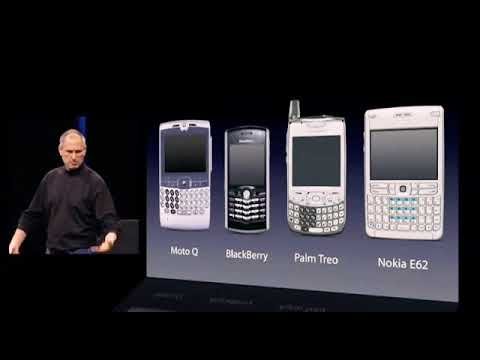
When polymetallic nodules were discovered for the first time at the end of the XIX century, the bright future of the deep-sea industrial mining seemed approaching so rapidly. That was a period of the powerful technological leap when the sci-fi stories of Jules Verne didn’t seem too fantastic anymore especially since the first submarines started cruising the world’s oceans. The on-shore extractive industry was developing intensively to satisfy the needs of the rushing industrial revolution, and everyone might expect that the oceanic mineral resources would be accessible shortly.
More than 100 years have passed since that time. Today we are witnessing the 4th industrial revolution with its computerized robotization and artificial intelligence. Two World Wars, space flights, television, nuclear weapons and many other events and inventions are behind the present human civilization whose development is tightly linked to technologies. Nevertheless, something atypical happens with the extraction of oceanic mineral resources.
Ask an average person about the most trendy topics related to the ocean nowadays. In most cases, the plastic waste islands, beached dolphins, indiscriminate fishing, and destruction of reefs will be the first things coming to mind. Some may also recollect the horrific oil spills that can kill sea species on the large ocean areas along with people sometimes — the “Deepwater Horizon” movie of 2016 was focusing on just negative connotations between the extractive industry and the ocean.

How come almost no one refers the oceanic resources to what can be accepted as the prosperity of humankind? Why does the public discourse ignore the very fact of such tremendously rich oceanic deposits as Clarion-Clipperton Zone, for example? And who will be that “maritime Elon Musk” capable of transforming the currently neglected oceanic mineral treasures into the hope of humanity?
At the dawn of the automobile industry, just electric cars were considered as the most perspective direction of development. However, after the invention of internal combustion engines along with achieving quite inexpensive oil refinery products the gasoline-fueled cars occupied the global market. Over a century passed until the “old new” electric-driven vehicles jumped at the top of popularity among global consumers.
Why was such a long period needed to realize that electric cars outperformed the conventional ones? Many might explain it with a certain technological insufficiency of the electric vehicles before Tesla Model S distracted the car market. Even if so, it is only part of the truth. Indeed, almost the entire intellectual power of the car engineers worldwide was dedicated to both gasoline and diesel engines in the 20th century. However, it is worth remembering that the prevailing “classic” capitalism of that period run under the “demand creates supply” principle.
The situation changed in the 1990s when the new postmodern paradigm began re-establishing the socio-economic relations. Gradually, the main economic drivers switched places — beginning from the first iPhone craze just supply started creating demand. And this is another part of the truth explaining the success of Tesla Motors in the 21st century.
Nothing revolutionary new was offered by Elon Musk to the consumers from the purely technological viewpoint. The main and only ingenious thing Elon invented was the very public discourse around electric vehicles. His approach was similar to what Steve Jobs has done for iPhone — he created a specific public image of the product, the “product-as-a-virus” capable of covering the globe with a consumeristic pandemia.

Even though Steve Jobs was the trailblazer who managed to make people crazy about his product, Elon Musk initially had some more difficult task — in contrast to the smartphones well-known to the wide audience before iPhone was first introduced, nothing similar to Tesla cars was available in the consumer market.
Some may reproach us about the obvious things we are trivially repeating here — of course, both Steve Jobs and Elon Musk represented the holistic socio-psychological concepts instead of just products. They applied no ideas inherent in the utopianism directly, but the viral happy dreams such as “me-and-iPhone” and “me-and-Tesla” impressed people somewhere at the subconscious level.
So what? What does all this have to do with oceanic mining?
The thing is that some similar “utopianistic” approach can be applied to almost everything under the sun. What has Elon Musk done to promote Tesla cars after all?
He started talking about how good was to own such an elegant eco-friendly hi-tech gizmo. He kept whetting the appetites of the consumers convincing them that such a socially responsible purchase as a Tesla car could strengthen their status making them eventually happy.
Just the discourse creates phenomena, as existentialists used to say. And Tesla Motors, SpaceX, Hyperloop — all Elon’s projects owe their success to the dream-provoking narratives reinforced by his personal charisma.

And the method of Elon Musk hints at what the present situation with oceanic minerals is lacking. The majority of the global population are simply unaware of such a phenomenon as manganese nodules at all. Not that someone keeps the information about oceanic minerals in secret intentionally. But the absence of a broad discourse about deepwater mining in mass media makes the subject virtually non-existent.
Moreover, the only international entity dedicated to the oceanic mining regulation — the International Seabed Authority prefers to remain a narrow-specialized organization most probably. Otherwise, the topics related to oceanic minerals appear in mass media as frequently as the ones dedicated to plastic contamination of the ocean do, for example.
Some may argue that the very absence of the oceanic mining topics in the information area witnesses the insignificance of the subject for the humanity — once almost nobody talks about seabed minerals, there’s nothing to talk about.
Of course, we can continue to ignore the subject, but we won’t be able to alter the scientifically proven facts regarding the abundance of minerals available on the oceanic bottom. Will it be reasonable to ignore 10 billion tons of the rare earth minerals such as cobalt, manganese, and zinc in the days of depletion of the onshore deposits?
Does the humanity really lack the conflicts and wars related to scarcity of natural resources?
On the other hand, the similar discourse takes place in mass media with regard to such sci-fi projects as asteroid mining and Mars exploration. The broad publicity of the topics provided by Elon Musk along with some other celebrities does not look weird, nevertheless. Hence, the problem of the resource deficiency exists in fact. Moreover, it seems very few people think of the actual feasibility of both Mars exploration and asteroid mining. We have discussed the subject recently, by the way.
Now we have to come back to the key issue again. One of the greatest classic philosophers Hegel said that existence influences the consciousness. About 150 years later one of the US presidents determined the idea in a more straightforward manner: it’s the economy, stupid. Today, we dare to define it even more radically: resource availability affects the destiny of the human race.
It means whatever deep silence we can keep about the mineral resource problem, the harsh reality will inevitably make us admit the importance of the mineral resources for the mere survival of mankind.
Freshwater, food, clean air, plants, and animals constitute the most valuable resources for humans, some may declare. How can we compare minerals with them? Without any intention to challenge the notion we’d like to give an example of how a mineral can influence the fate of a nation.
Consider such a “humble” mineral as manganese with regard to the independence of the United States.
No relations? However, no native deposits of manganese are available throughout the United States. The US have to import manganese from abroad. Imagine that the manganese supply chain is inaccessible for some reason anymore. Which of the industries will suffer most of all then?
The thing is that the production of special alloy steels is impossible without manganese. The arms industry, in its turn, cannot do without the alloy steels. Please note, that the military sector cannot be outsourced to China or India — this is a national security interest having nothing similar to iPhones or footwear.
Finally, the strongest army in the world might face the deficiency of weapons and ammunition.

Consider now what the effects of the situation might be. The common logic suggests either the loss of sovereignty or a war over resources. Both variants are far from a humane solution, right?
We tackled just a slight aspect of the “importance of minerals” which deserves a separate extensive study. Nevertheless, the key message we’d like to emphasize is the critical need for the wide publicity of both the advanced seabed mining technologies and the very abundance of minerals the global ocean can offer to humanity.
Our subsequent posts will cover various particular aspects of oceanic mining. We will keep propagating the idea that exploration of the Earth’s oceans is much more feasible, lucrative and reasonable for the humankind than asteroid mining along with the other sci-fi projects balancing on the verge of mental speculations.
At the same time, we will continue to examine such innovative approaches to the real-sector extractive industry as the blockchain-based gamification.
And the most important mission of all our narratives comes to the actual implementation of the Extractive Industry 2.0 initiative — we cannot afford to watch how our planet suffers from the onshore predatory mining while the colossal mineral treasures are neglected on the seabed.
Follow us: https://www.facebook.com/Extractive-Industry-20-1036416526523302/